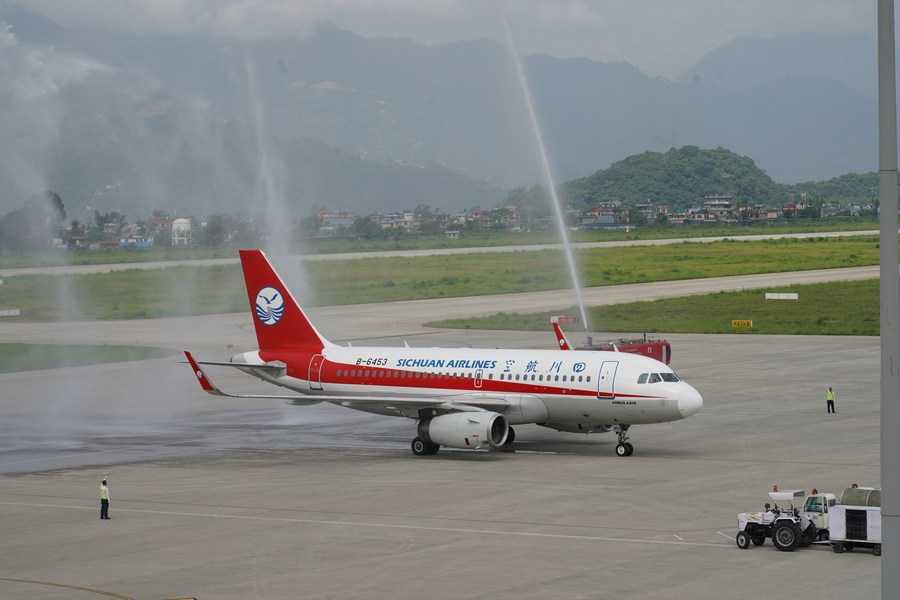


In what could become a dispute over tax compliance, Chinese carriers operating in Nepal have allegedly failed to pay PKR 4 billion in Value Added Tax (VAT), collected from their operations in the country.
Though Nepal has tried its best to enforce the requirement compliance, Chinese carriers continue to avoid the registration with Nepal’s VAT system, citing opposition to the policy’s principles.
Worth noting here, since the introduction of VAT on international air services in Nepal’s Finance Act 2080 BS, the majority of international airlines have complied by registering for VAT and paying taxes.
However, Chinese carriers like Air China, China Southern Airlines, China Eastern Airlines, and Sichuan Airlines, have not complied the requirements of the Nepal.
The carriers are accused of lobbying against the policy through diplomatic channels. A source at Nepal’s Ministry of Finance disclosed that the Chinese Embassy in Kathmandu has exerted pressure on the Nepalese government, claiming that the VAT imposition contradicts international principles.
A senior Finance Ministry official reiterated Nepal’s position in the VAT compliance: all foreign airlines operating in Nepal must comply with the nation’s tax laws. The official emphasized that Nepalese companies operating abroad adhere to foreign laws, and reciprocity is expected.
“Special facilities cannot be provided to Chinese airlines alone,” said the official. “Nepal’s tax system applies to everyone equally.”
The Director General of the Inland Revenue Department (IRD), Ram Prasad Acharya, affirmed that discussions with Chinese airlines are ongoing. He disclosed that the airlines proposed paying the VAT without registering for it, a suggestion deemed illegal by the IRD.
The Chinese Embassy reportedly sent multiple communications to the Nepalese government urging exemption for its airlines. Sources reveal that the embassy even warned of potential repercussions for Nepal’s tourism and bilateral relations if the VAT is enforced.
“China’s embassy sent letters before the budget, claiming that taxing international air tickets contradicts basic principles and laws,” a ministry source stated. “Even after that, they have continued lobbying to prevent their airlines from complying.”
Under the latest financial bill, VAT is required not just from airlines flying directly to Nepal, but also from offline airlines—those transporting passengers originating from Nepal via connecting flights abroad. This reform ensures that VAT is levied on all air ticket purchases made within Nepal.
To assist with compliance, the International Air Transport Association (IATA) established a system to charge VAT on tickets originating from Nepal. This move has led many global airlines to register and pay VAT in the country.
The Chinese airlines’ non-compliance raises significant concerns about Nepal’s ability to enforce its tax laws and ensure fairness among foreign operators. The dispute also risks straining Nepal’s diplomatic and economic relations with China, one of its largest trading partners and a significant investor.
Nepal’s government appears resolute in enforcing VAT compliance. As Director General Acharya stated,
“Chinese airlines must follow Nepal’s legal procedures. Payment without VAT registration cannot be considered lawful.”
For now, the Rs 4 billion in VAT remains unpaid, while negotiations continue. Tourism entrepreneurs in Nepal are worried as Chinese airlines have warned that it will stop flights to Nepal if the VAT provision on air tickets is not removed.
These entrepreneurs, who are looking to tap the potential of Chinese tourists to revive the ailing tourism industry in the country, believe that any decision by Chinese airline companies to halt flights to Nepal over the VAT row on air tickets could deliver a significant blow to the country's tourism sector.
According to the Nepal Tourism Board, the number of Chinese tourists entering Nepal in the first five months of 2024 (January-May) was 46,671.
Before the COVID-19 pandemic, the number of Chinese visitors in 2019 was 169,543, the highest ever recorded. In 2023, the number of Chinese tourists entering Nepal stood at 60,878.
According to Gyanendra Bhul, information officer of CAAN, following the discussion, the Ministry of Finance and the IRD have been asked to further study the issue to find a solution. Chinese airlines are not registered for VAT in Nepal due to double registration for VAT in both China and Nepal.
Bhul said that Nepal has signed a Double Taxation Avoidance (DTA) agreement with China, which stipulates that the Chinese company should pay VAT in Nepal.
"The air treaty agreement between the two countries should resolve this dispute. However, China has now requested to remove this VAT provision," he added.
Now, the key challenge will be whether Nepal can enforce its tax laws without harming its relationship with its northern neighbour, as this will test the country's ability to maintain both fiscal and diplomatic independence.
You may like to read....
